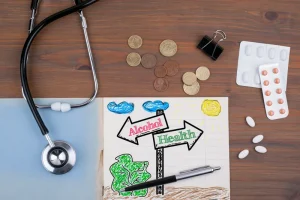Any cue with emotional significance registers on the brain’s amygdala, which then activates the nucleus accumbens and its dopamine neurons. Their activation gives rise to the sense of motivation, experienced as a highly focused urge to seek the substance. The risk of signs of drug use addiction and how fast you become addicted varies by drug. Some drugs, such as opioid painkillers, have a higher risk and cause addiction more quickly than others. A person on a stimulant may exhibit frequent behavior changes, aggression, or rapid or rambling speech.
Defining Features of Addiction
A person may have flushed skin and broken capillaries, particularly in the face. With severe alcohol use disorder, the hands may tremble, and the voice may take on a huskier tone. Long-term abuse of alcohol can lead to chronic diarrhea and even vomiting blood.
- People can speak with a primary care doctor if they experience SUD symptoms or if they are concerned about a loved one who may have an SUD.
- They are often used and misused in search of a “high,” or to boost energy, to improve performance at work or school, or to lose weight or control appetite.
- And friends or family members are the first to notice something has changed.
- Recovery from drug addiction is a long process that often involves setbacks.
Common Signs and Symptoms of Substance Abuse
In addition, SUD from illegal opioids is a large public health problem in the U.S. that can lead to overdose and death. In some cases, SUD can result from prescription opioids, but the bulk of the crisis stems from illegal or “street” drugs. Substances, such as alcohol, cannabis, stimulants, and opioids, are psychoactive drugs that may change an individual’s brain function and structure after chronic use.

Drug addiction and the brain
- As a person continues to use drugs, the brain adapts by reducing the ability of cells in the reward circuit to respond to it.
- A history of trauma in your life also makes you more likely to have addiction.
- Many people start taking these drugs to cope with a specific medical problem—taking painkillers following injury or surgery, for example.
- While frequency or the amount of drugs consumed do not necessarily constitute drug abuse or addiction, they can often be indicators of drug-related problems.
- Exposure to chemicals, plants, and other toxic substances that can cause harm are called poisonings.
- Drug overdoses in this age group are generally caused when someone accidentally leaves a medication within the child’s reach.
- You’ve abandoned activities you used to enjoy, such as hobbies, sports, and socializing, because of your drug use.
You often do drugs or use more than you planned, even though you told yourself you wouldn’t. Problems in your relationships, such as fights with your partner or family members, an unhappy boss, or the loss of friends. People can speak with a primary care doctor if they experience SUD symptoms or if they are concerned about a loved one who may have an SUD. Addiction is a lot like other diseases, such as heart disease. Both disrupt the normal, healthy functioning of an organ in the body, both have serious harmful effects, and both are, in many cases, preventable and treatable.

Why do some people become addicted to drugs, while others do not?

